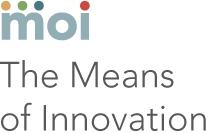This is a blog about innovation within and across art, science, technology, and law. More particularly, it focuses on the issues involved in transforming good ideas into deployed solutions. However, it does not presume that “innovation,” “entrepreneurship,” and other popular terms are currently well defined. It also does not limit the dialogue to “technology” in the current sense of that term. Whatever innovation is, it seems to occur in every field of human activity. Likewise, there are entrepreneurial ventures in every field.
Much of the blog will be about topics that I am exploring in my forthcoming book, Methodology: Art, Science, Technology, Law, and the Means of Innovation (under contract with Oxford Univ. Press). These all revolve around the idea that methods are central to everything we do as creative humans. The book defines innovation as the design of new problem solving methods. It argues for a new science of methods that can be used to study and design new problem solving methods across any field–a true methodology.
The processes of designing and using new problem solving methods are the means of innovation: a phrase I have coined to update the classical economics phrase means of production for the “Innovation Age.” Questions of the nature, use, and control of the means of innovation will, I believe, be the defining issues of the twenty-first century.
Already, we see passionate debates in intellectual property (IP) law over whether patents should be issued on tax compliance methods, genetic diagnostic test methods, science research methods, business methods, and even legal methods such as filing patent applications. Each of these is currently debated as a stand alone issue. Yet clearly they are all united by the power of methods and concern over their ownership and control. Likewise, there are pitched debates over whether non-compete agreements and other methods of controlling the movement of creative class workers should be allowed, limited, or outright prohibited. These are all really questions about control of the means of innovation.
An equally important theme of the book is that for too long Western culture has been obsessed with the quest to reduce everything to propositional statements–things that can be stated in literal or symbolic language. Even patents for processes or methods–ways of doing things in the world–must be based on written description and written claims. Anything not able to be reduced to a propositional statement is marginalized as tacit knowledge, which is presumed to be just some personal know-how that specialists in a given field possess. The book instead brings know-how–and especially show-how–front and center by arguing that the most important creative activities we engage in are based on methods that cannot be reduced, in any practical way, to propositional statements.
Accordingly, this blog and other activities stemming from the book project will spend a lot of time on exploring and documenting show-how in different fields. This will necessitate heavy reliance on multimedia and live demonstrations. At its most ambitious, my vision includes an “Institute for Methodology” that would be a physical space equipped so that which interested participants could explore, document, and then advance show-how in any number of fields.
For now, this blog is the forum to discuss methods and the means of innovation through dialogue and media clips. And while this first post may sound quite theoretical and abstract, much of the content on the blog will focus on very practical issues of the deployment of innovation and entrepreneurship. Much of this will center on legal issues. To that end, I have two contributing authors, Pat Franke and Brian Endter, who are shareholders in the Emerging Companies and Entrepreneurs practice group at Graham & Dunn, a Seattle law firm. Over time, we will likely add more regular contributing and guest bloggers. In the meantime, I hope you find the blog helpful and thought-provoking. Stop back often to see what we are up to and join in the conversation!

 RSS
RSS Twitter
Twitter
